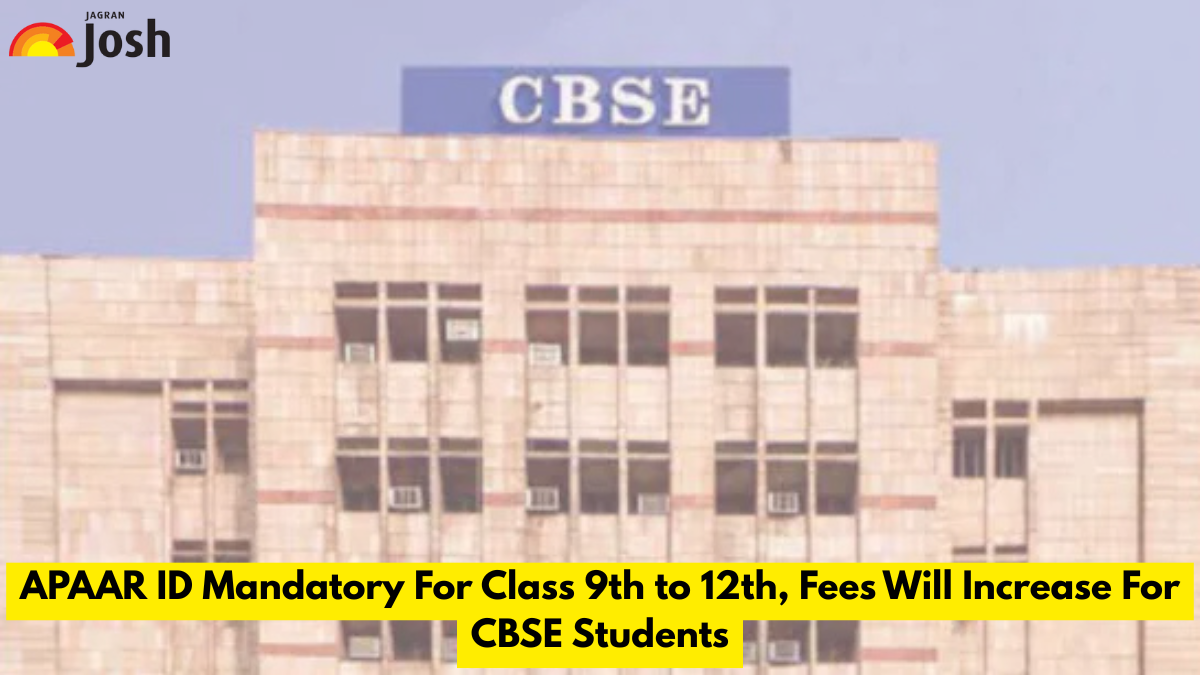CBSE Board Exam 2026: CBSE Board test 2026: According to the Central Board of Secondary Education (CBSE), students in classes 9 through 12 who wish to sit for the CBSE board test 2026 must link their APAAR IDs. Beginning in the academic year 2026, students must create an APAAR ID. Additionally, the examination costs and registration fees for the CBSE exam 2025 have been updated by the authorities for applicants who wish to sit for the board exam.
The CBSE exam fees for students in Nepal, India, and other international nations have been updated by the board. To increase the accessibility of educational resources, the authorities will set up a digital experience center driven by AI in the interim. When creating the List of Candidates (LoC) for Classes 10 and 12, as well as when registering students in Classes 9 and 11, this will be necessary. Before the registration process starts, schools are required to obtain students' APAAR IDs.
CBSE Board Exam Fees 2026
The examination and registration fees for the 2026 board exams have been updated by CBSE. The cost of every theoretical course has gone up by ₹20. Additionally, the cost of practical exams has increased by ₹10 each topic.
| Section | Subjects / Category | India | Nepal | Other Countries |
| Examination Fee (Class 10, 12) | For one theory subject | INR 320 | INR 1100 | INR 2200 |
|
| For five theory subjects | INR 1600 | INR 5500 | INR 11000 |
| Practical subjects (Class XII only) | — | INR 160 | INR 175 | INR 375 |
| Registration Fee | Class 9 | INR 320 | INR 550 | INR 550 |
|
| Class 11 | INR 320 | INR 660 | INR 660 |
What Is An APAAR ID?
From pre-primary to higher education, each Indian student gets a unique 12-digit ID known as APAAR, or Automated Permanent Academic Account Registry. An important part of the "One Nation, One Student ID" campaign, it was introduced under the National Education Policy (NEP) 2020.
Related Stories
A student's academic records, accomplishments, and certificates are all consolidated into a single digital platform by the APAAR ID, which serves as a lifetime academic passport. It is intended to simplify the educational process by facilitating credit transfers through the Academic Bank of Credits (ABC), facilitating transfers between institutions, and enabling access to records using DigiLocker. The goals of this project are to lessen fraud, enhance data management, and promote an education system that is more orderly and transparent.
Also Read:
CBSE Approves OPEN Book Exams for Class 9th Form Academic Exam 2026-27; Details here

Comments
All Comments (0)
Join the conversation